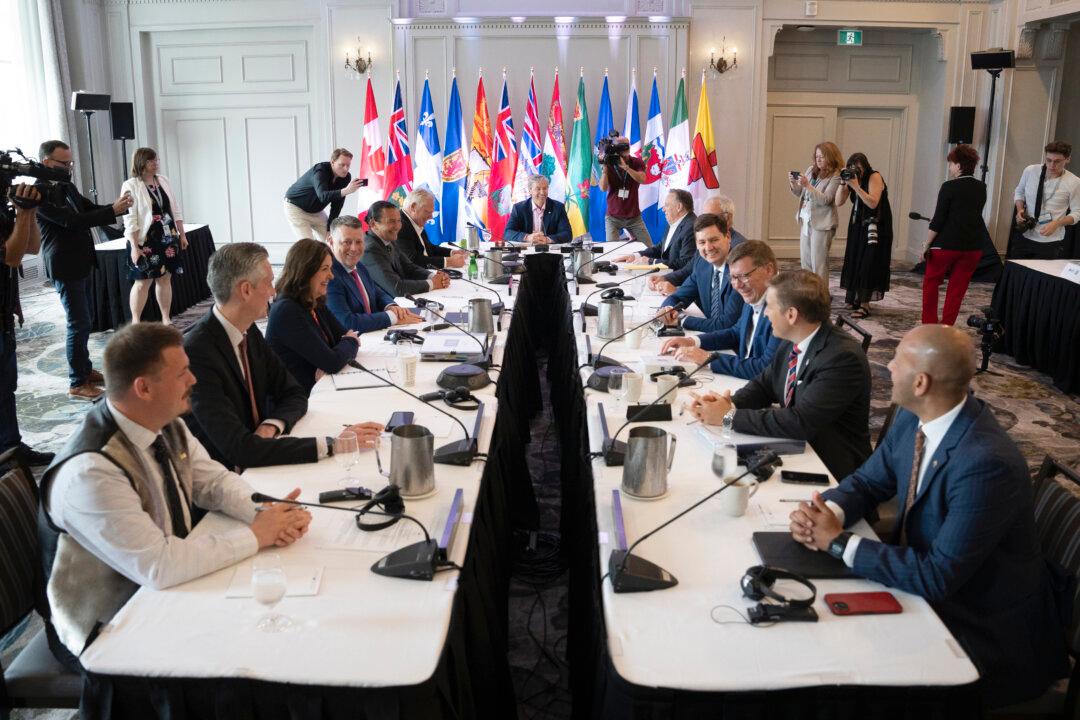Premiers and ministers agreed that Canada must mount a united response based on increasing border security, following a Council of the Federation meeting with Prime Minister Justin Trudeau to discuss how to deal with the incoming U.S. administration’s threats of 25 percent tariffs.
Deputy Prime Minister Chrystia Freeland said the Nov. 27 meeting mainly revolved around the trading relationship between the two countries. She noted that many premiers were concerned with exports to the U.S., particularly oil, critical minerals, and metals.





